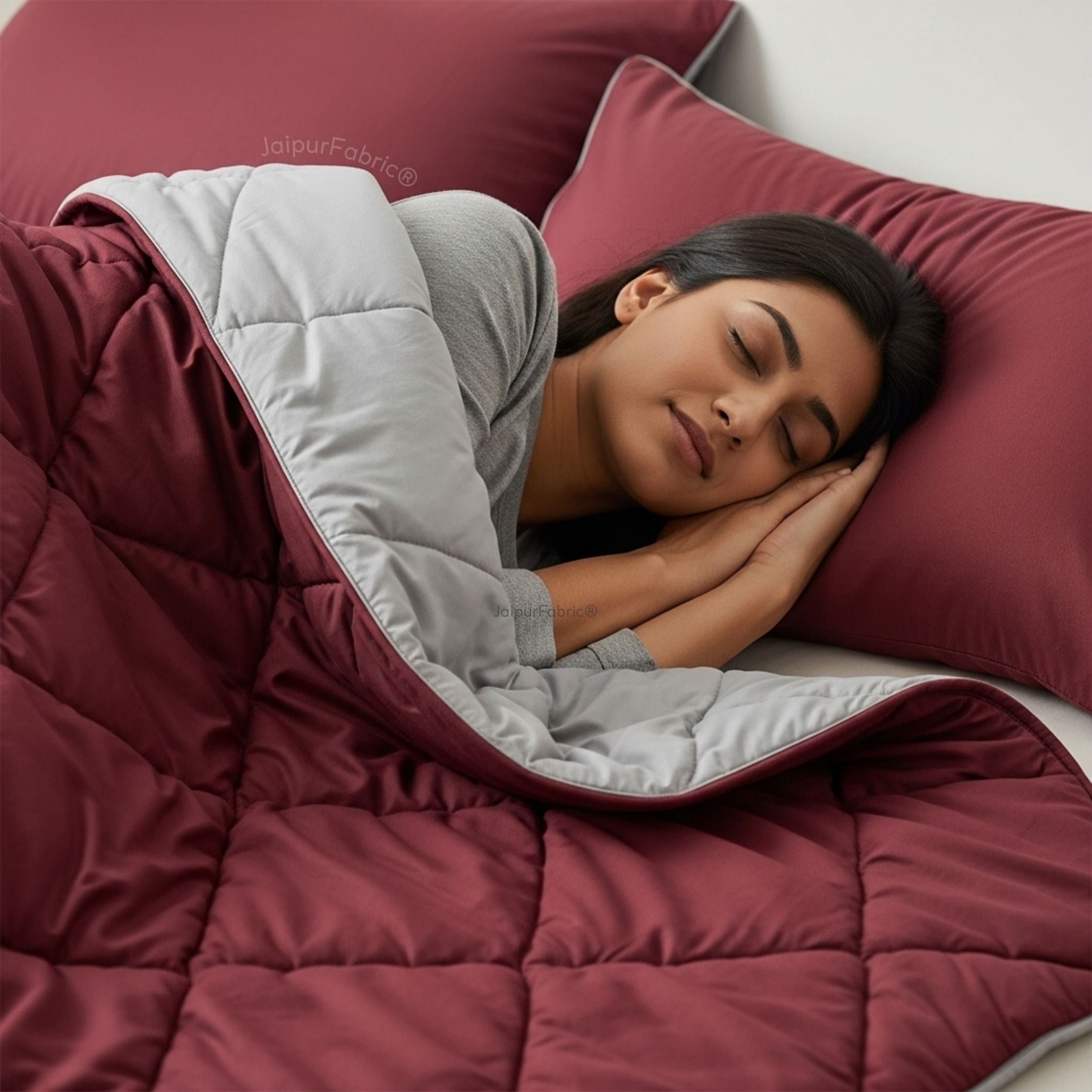Understanding TC (Thread Count) in Bedding: What You Need to Know for the Best Sleep Experience
Understanding TC (Thread Count) in Bedding: What You Need to Know for the Best Sleep Experience
When shopping for bed linens, you often come across the term "TC" or "Thread Count." But what does thread count really mean, and how does it affect the comfort, quality, and durability of your bedding? In this comprehensive guide, we’ll dive into everything you need to know about thread count, helping you make the best choice for a restful night's sleep.
1. What is Thread Count?
Thread count (TC) refers to the number of horizontal (warp) and vertical (weft) threads woven into one square inch of fabric. For example, if a sheet has 200 warp threads and 200 weft threads, the total thread count is 400.
High Thread Count: Generally, the higher the thread count, the softer and more durable the fabric. However, higher isn't always better, as there are other factors to consider.
Low Thread Count: Sheets with a lower thread count (typically under 200) are often less expensive and less durable but can still be comfortable depending on the fabric quality.
2. The Ideal Thread Count for Different Fabrics
The perfect thread count varies depending on the type of fabric and personal preferences. Here’s a breakdown:
Cotton: For standard cotton, a thread count of 200-400 is generally ideal. Premium options like Egyptian or Pima cotton often have thread counts between 300-600.
Percale: A crisp, cool weave that typically ranges between 200-400 thread count. Ideal for hot sleepers.
Sateen: Known for its silky feel, sateen weaves perform well with a thread count of 300-600.
Linen: Linen sheets are measured differently and do not rely on thread count as a measure of quality. Focus on the type of linen rather than TC.
3. How Thread Count Affects Sheet Quality
While thread count plays a role in determining the quality of bedding, it is not the sole indicator. Here are some key factors affected by thread count:
Softness: Higher thread counts often result in a softer feel. However, sheets made with quality fibers (like Egyptian cotton) can be soft even at lower thread counts.
Durability: Higher thread counts typically offer greater durability, but overly high counts (above 800-1000) can lead to heavy and less breathable sheets.
Breathability: Sheets with a lower thread count (200-400) are usually more breathable and better suited for warmer climates, while higher counts (400-800) offer a luxurious feel but may retain more heat.
4. The Myth of Ultra-High Thread Counts
You may have seen bed sheets advertised with thread counts of 1000 or higher. While this sounds luxurious, ultra-high thread counts often involve multi-ply yarns, where multiple strands are twisted together to artificially inflate the thread count. This can make the sheets heavier and less breathable.
Single-Ply vs. Multi-Ply: Single-ply yarns (one thread per strand) are usually of higher quality than multi-ply yarns, which may sacrifice comfort for a higher TC number.
Marketing Tactics: Be wary of marketing that focuses solely on ultra-high thread counts, as quality fiber and weave are equally important.
5. Choosing the Right Thread Count for You
When selecting the best thread count for your sheets, consider your personal preferences and sleep environment :
For Hot Sleepers: Opt for percale sheets with a lower thread count (200-300) for maximum breathability.
For Cold Sleepers: Choose sateen sheets with a higher thread count (400-600) for warmth and coziness.
For Everyday Use: A thread count of 300-500 in quality cotton is a great balance of comfort and durability.
6. Final Thoughts on Thread Count and Bedding Quality
While thread count is an essential factor in selecting quality sheets, it should not be the only criterion. The type of fabric, weave, and quality of fibers are just as important. Investing in premium bedding made from high-quality materials will ensure a better sleep experience, even at a lower thread count.
FAQs about Thread Count
What is the best thread count for sheets?
For most fabrics, a thread count of 300-500 is optimal for a balance of softness and durability.
Is a higher thread count always better?
Not necessarily. Quality of fibers and weave also matter. Ultra-high thread counts may not always mean better comfort.
What is the best thread count for hot sleepers?
A lower thread count (200-300) in breathable materials like percale cotton is ideal.
Conclusion Understanding thread count is key to choosing the best bedding for your needs. By considering factors like fabric type, weave, and personal preferences, you can find the perfect sheets for a good night's sleep. Remember, quality always trumps quantity when it comes to thread count!



















